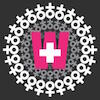 |
| PWN-USA |
However, the federal government has consistently failed to prioritize women in the domestic HIV response:
• through the release and implementation of the first-ever National HIV/AIDS Strategy, which failed to articulate any metrics specific to women;Consequently, we are compelled to point out the myriad ways in which violence is perpetrated against women living with HIV. The intersections between HIV, violence and trauma for women are well-documented in the literature, and we applaud the White House Office of National AIDS Policy (ONAP)’s lead role in addressing this critical issue, forming a federal interagency workgroup to address it, and making this issue the centerpiece of its NWGHAAD focus this year.
• in the President’s 2016 budget, which proposed, for the second year in a row, the elimination of Ryan White Part D, the only federally funded program specifically designed for women and youth, without proposing a plan to ensure that quality services for women are addressed in a consolidated Ryan White portfolio;
• in a White House NWGHAAD event focused on trauma, violence, and HIV – literally a matter of life and death for far too many women in our communities – which neglected to incorporate women with HIV in the planning or visioning process, and added a woman living with HIV to the program as a speaker only last week.
However, it is important to recognize that violence comes in many forms – from institutions, policies, and practices that systematically render transgender people invisible, to power structures that consistently fail to meaningfully involve women and other communities impacted by HIV in generating recommendations, solutions, and decisions about policies and programs that impact our lives.
To effectively address the HIV epidemic among women, including the estimated 300,000 women living with HIV in the United States, the next National HIV/AIDS Strategy – which will be released this year – must include strategic priorities that address women’s needs. These include the need for high quality, non-stigmatizing sexual and reproductive healthcare for women with HIV throughout the lifespan, implementation of trauma-informed practices in care settings, and family-centered services that facilitate and support access to care for people living with HIV.
Most important, people living with HIV must be meaningfully involved in crafting sustainable policy and programmatic solutions that reflect the realities of our lives. On #NWGHAAD, and every day of the year: Nothing about us #WithoutUs.
This article was originally published on the PWN-USA website.






Comments
Comments